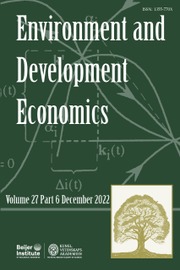Principles of Cost-Benefit Analysis for Developing Countries
The book presents the theory of cost-benefit analysis and applies this theory to contemporary problems of development economics. It is distinctive in that it combines an introduction to welfare economics and project appraisal with a discussion of current issues in development economics such as structural adjustment policies, commodity stabilization programs and environmental issues. The book assumes a basic economic understanding and should be a useful text and also of interest to public policy administrators.
- Many topical development issues covered within cost-benefit analysis framework
- Uses up-to-date research to discuss applications of the analysis
- General equilibrium framework unusually used for presentation of theoretical ideas
Product details
January 1996Hardback
9780521473583
304 pages
236 × 156 × 23 mm
0.56kg
21 tables
Available
Table of Contents
- Part I. Introduction to Welfare Economics:
- 1. Measuring changes in economic welfare: consumer and producer surplus
- 2. Consumers and producers: some basic theory
- 3. Welfare change in general equilibrium
- 4. Equity and efficiency
- Part II. Project and Policy Appraisal in Developing Countries:
- 5. Project appraisal: an overview
- 6. Shadow prices for traded and non-traded commodities in an open economy
- 7. Trade policy, exchange rates and structural adjustment
- 8. Labour markets in developing countries
- 9. The social value of labour
- 10. Intertemporal costs and benefits (1): a market-based approach
- 11. Intertemporal costs and benefits (2): a social planning approach
- Part III. Missing Markets:
- 12. Externalities and public goods
- 13. Risk and the measurement of welfare change
- 14. Natural resources and the environment
- Retrospect.






